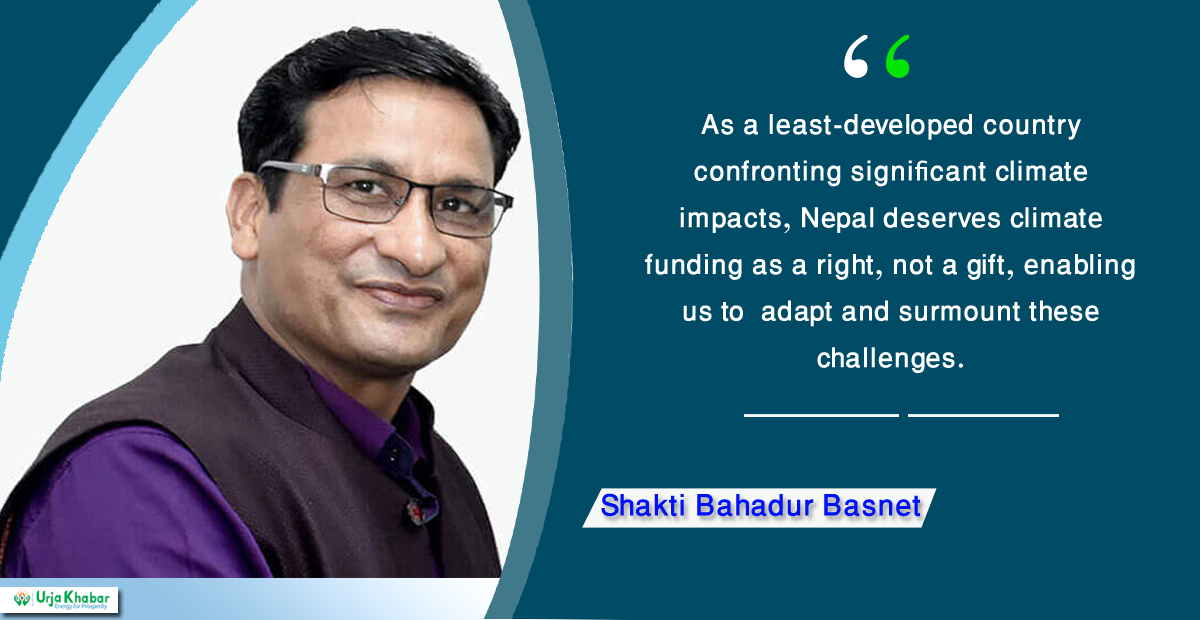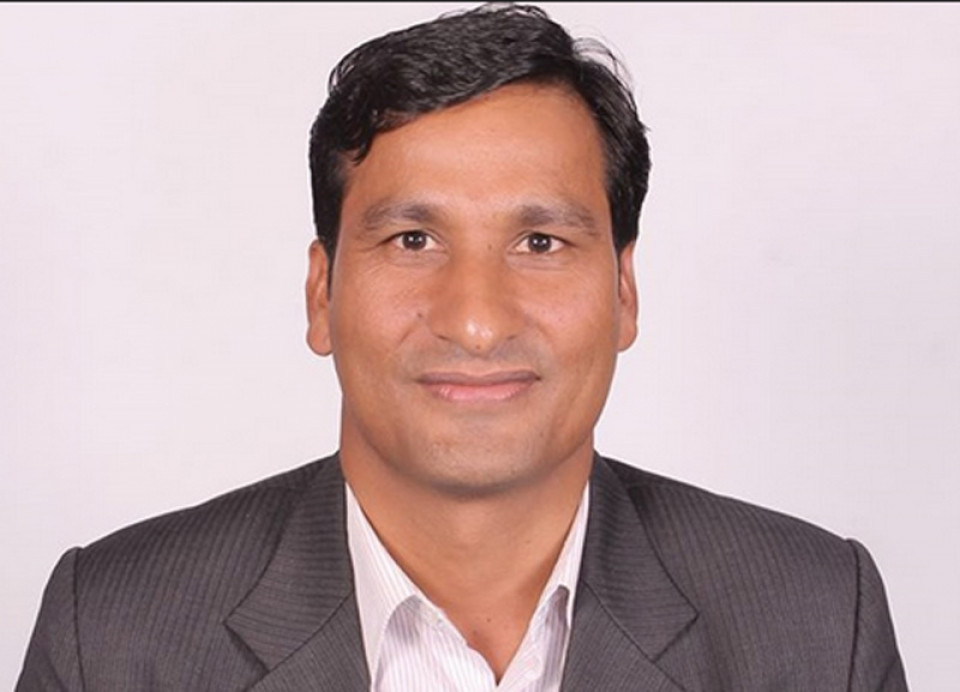
I am deeply honored to stand before you today as we engage in a dialogue of profound significance, discussing Nepal’s Energy Transition Policies and Challenges within the context of the commitment made by our nations in COP28.
Our presence here is a testament to our shared understanding that the challenges we face are vast, interconnected, and demand a collective response that goes beyond borders and ideologies. The urgent need to address the escalating climate crisis requires the commitment of South Asian countries to reflect a collective understanding that the time for action is now, and the consequences of inaction are too grave to ignore. Nepal collaborated with the global community to reaffirm our dedication to established principles and goals. Our nation, nestled in the lap of the Himalayas, is not immune to the consequences of climate change, despite making a negligible contribution to global greenhouse gas emissions. Already, one-third of Nepal's mountain snow cap has melted, leading to significant impacts on various aspects of humanity, including water recharge systems, agricultural production, and energy infrastructure.

In South Asia alone, an estimated 240 million mountain dwellers and 1.6 billion human souls, or 20% of the planet’s human population, directly depend on the Fresh Water Towers of the Himalayas, including the Hindu-Kush Himalaya region, but these pristine resources are retreating at an alarming pace. This boom-and-bust water cycle poses a great risk to already vulnerable downstream urban populations from imminent glacial lake outbursts, excessive landslides, inundation, and a dramatic increase in flash floods in the high mountains and mid-hills. This region demands special attention and consideration while addressing the livelihoods of the poorest and most vulnerable communities.
Ladies and gentlemen, Nepal is dedicated to energy transition across all sectors, evident in our Second Nationally Determined Contribution (NDC) and Long-Term Strategy for Net-zero Emissions, targeting net-zero emissions by 2045. Prioritizing inclusivity, we focus on implementing the Action Plan for Gender Equality and Social Inclusion (GESI) alongside a climate-resilient, gender-responsive adaptation strategy.

In our updated Energy Development Roadmap, we aim to generate around 28,000 MW by 2035, focusing on hydropower, solar, and renewables. We actively promote electric vehicles, expanding nationwide charging infrastructure, and initiatives like e-cooking to boost local electricity consumption. Committed to cross-border power connectivity, we've signed agreements with India, Bangladesh, and China. Notably, successful cross-border transmission interconnections with India facilitate bidirectional power flow. Ongoing projects aligned with the cross-border transmission line development master plan will strengthen our grid and enhance energy sector cooperation. Looking ahead, we explore connections with Bangladesh and neighboring countries to bolster regional energy security, optimize resources, integrate renewables, and address regional electricity demand. Recognizing the transformative potential of collaboration, we are expanding from bilateral to trilateral and regional grid interconnections for seamless electricity flow, bridging the demand-supply gap.
Additionally, we have meticulously revised our policies to underscore a commitment to providing clean and sustainable energy accessible to all. Our primary focus remains on fostering development and prosperity for every individual. Through these refined policies, we aim to create a framework that not only promotes the widespread availability of clean energy but also addresses the broader goals of societal progress and well-being. This includes initiatives aimed at supporting economic development, uplifting living standards, and ensuring that the benefits of clean energy reach every corner of our community.
However, challenges persist, encompassing policy reforms, infrastructure expansion, easy access to the South Asian power market, technological innovation, capacity enhancement, and mobilizing international finance. Addressing these challenges will further strengthen our commitment to sustainable energy and regional collaboration.
I appeal for your support in addressing the challenges we face, particularly in mobilizing financial resources. As a least-developed country confronting significant climate impacts, Nepal deserves climate funding as a right, not a gift, enabling us to adapt and surmount these challenges. Aligned with international commitments, developed nations must allocate resources and ensure the direct delivery of assistance to countries affected. Given the consensus reached in COP28 regarding the establishment of a loss and damage fund, coupled with a commitment exceeding 700 million USD, I urge that Nepal be given the highest priority in receiving support. This will support us to effectively tackle and overcome the challenges posed by climate change.
I firmly believe that today's roundtable will be a crucial milestone in fostering a broader understanding of regional energy cooperation in South Asia, contributing significantly to the energy transition in the region. Let our collaboration be a ray of hope, demonstrating that, through shared efforts and a humble spirit, we can create a sustainable and resilient future for all.
Basnet is the Minister of Energy, Water Resources and Irrigation, this is an edited version of his remarks at the “Climate Parliament: Kathmandu Roundtable on Regional Energy Cooperation in South Asia” during the Plenary Session, on December 17 in Kathmandu.
